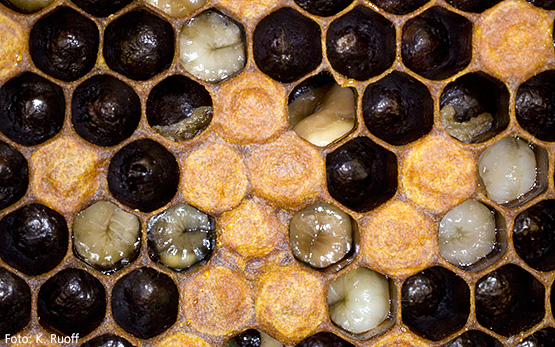European foul brood is caused by the Melissococcus plutonius bacterium. Only the brood is affected. Adult bees may be carriers of the pathogen and a vector of the disease, but do not become infected themselves. Melissococcus plutonius is found in two forms: as replication-competent bacteria (cocci) in the gut of the larvae, and as resistant capsules that form when conditions are unfavourable. As with American foul brood, in which the spores are infectious, with European foul brood it is also the latent form (capsules) that triggers the infection. Ingestion of the capsules with the food causes the onset of the disease in the young larvae. The mode of action of the bacteria is not known. Detailed information on the biology and diagnosis of European foul brood can be found in our Guide to Bee Health.






